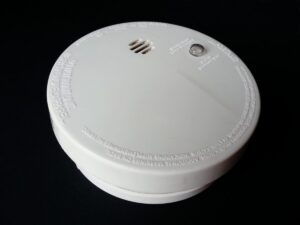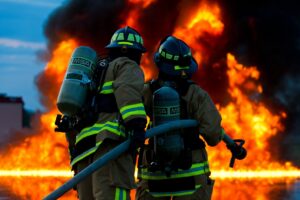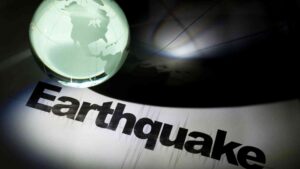It’s that time of year again. The time of year when man tries to tell the sun what time to come up. You should check your smoke alarm every time the time changes and change the batteries. Fire satety may be the only reaons we keep time change but it makes for a good twice a year reminder. There are a few other things that are good to check twice a year too. Here are six things to check after checking your smoke alarm.
- Go through a fire safety drill
You’re already checking your smoke detector, so round it out with a little more effort. How would you get out of your home if you needed to? Could you do it in the dark, crawling on your knees through smoke? Where are your utility shut-offs? Do you have the tools needed to turn them off? Get the whole family involved and go over your meeting location outside the home.
- Backup your phone and computer
Now is a good time to do a complete backup of your phone and computer. Back your phone up to your computer and then perform a backup to an external hard drive of your computer. You should do this more often, but twice a year is a great start.
- Take a different route to work/school
Spend a little extra time familiarizing yourself with your environment. It’s a great way to stay alert. Change your routine. Varying your route keeps you from becoming predictable, something criminals look for in a victim. Know an alternate route ahead of time. This will allow you to remain calm and rational if you ever need it in an emergency.
- Restock your first aid kit and medicine cabinet
Make sure your medicine cabinet is stocked. You’ll be thankful when you can avoid a trip to the store while you’re sick. Do a quick glance at the expiration dates and then check for items that are yellowing or packages that have opened. Is there a stocked first aid kit in your vehicle?
- Restock/refresh your emergency food and water
FEMA recommends keeping 3 to 14 days of food and water on hand for every member of the family. Take stock and see if you need to add anything. Check the expiration dates and ask yourself if you would want to eat what you have. Can you prepare it if the power is out?
Check your water as well. Or in some cases, check your well water. While water can keep indefinitely, the safety and quality will drop as time goes on. Several sites recommend changing stored tap water every six months. (Keep in mind that there are only 126 days between this time change and the next one, or 4 months, 6 days.) The CDC recommends checking your well at least once a year, or more if your family has come down sick with gastro-intestinal problems several times during the year, or the quality of the water changes.
- Check your vehicle
Time change coincides with a change in weather for most people. Make sure you have everything you need in your vehicle for your climate. Salt, ways to keep warm, a correctly inflated spare tire, tools, that first aid kit we already mentioned are all good things to have handy.
Bonus Item
Write to your government officials and tell them to end this madness! Studies show the added stress of losing an hour of sleep during daylight savings increases the risks of fatal vehicle accidents by 6 percent, and heart attacks by as much as 24 percent!
Time change is a great time to check your smoke detector, but it is also a great time to make sure you are prepared for some other emergency situations. Are you ready?
- How to Shelter in Place During a Nuclear Event
- How to sleep in your car overnight
- How to prepare for power outages
- Preparing for Severe Weather
- Faith in Action: Responding to Trump’s Reduction in Humanitarian Aid
- How to Help Someone Who is on Fire
- How To Get Help When 9-1-1 Is Down
- Does a Solar Eclipse Really Warrant a State of Emergency?
- The Coming Digital Apocalypse?
- Disaster Survival: Do These 3 Things Within 60 Seconds
- 5 Disaster Relief Tips for a Major Earthquake Response
- Can We Shoot the Chinese Balloon Down?
- Incident Management Team: Tips for a Successful Deployment
- TC001 Best New Thermal Camera? Review for TOPDON TCView
- 5 Ways To Stop Overpaying For Healthcare
- Preparing Your Pets for Disaster

















